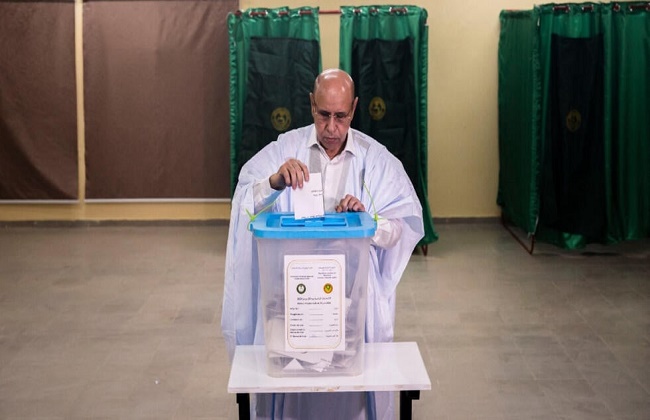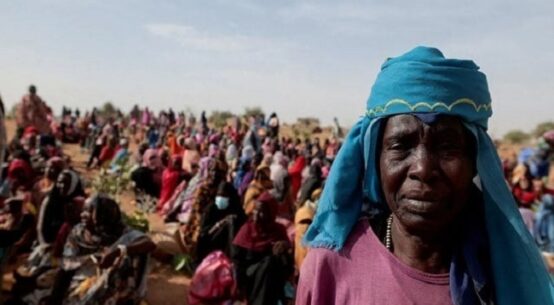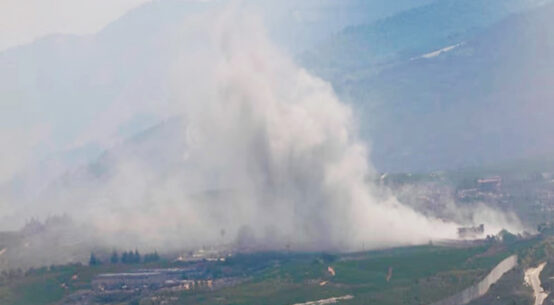
Mauritania’s President Mohamed Ould Cheikh El Ghazouani was set to win re-election by a comfortable margin, results from the electoral commission showed, with an official proclamation due on Monday.
Mauritanians went to the polls on Saturday to choose between seven candidates vying to lead the sprawling nation, which has largely withstood the tide of jihadism in the region and is set to become a gas producer.
After all votes were counted, the Independent National Electoral Commission (CENI) said that former general Ghazouani would win the election with more than 56 percent of the vote.
That would put him well ahead of the country’s main opposition leader, human rights campaigner Biram Dah Abeid, who CENI predicted would win 22 percent of the vote.
Abeid said on Sunday that he would not recognise the results of “Ghazouani’s CENI”.
“We will only recognise our own results, and therefore we will take to the streets” to refuse the electoral commission count, he said.
But he insisted their response would be “peaceful”, calling on the army and the security forces “not to follow the orders of the regime”.
Some of his supporters demonstrated in the capital Nouakchott, burning tires and disrupting traffic.
At the end of the afternoon, Abeid’s campaign headquarters were surrounded by security forces, according to an AFP journalist. His campaign manager was arrested, a spokesman said.
The police presence in the capital increased significantly later in the evening.
Ghazouani’s other main rival, Hamadi Ould Sid’ El Moctar, who heads the Islamist Tewassoul party, came third with 12.76 percent of the vote, according to CENI.
He said he would “remain attentive” to any breach of voting regulations.
Overall turnout was estimated at 55 percent.
“The situation in the country is under control and citizens can go about their business in peace,” Interior Minister Mohamed Ahmed Ould Mohamed Lemine told reporters.
The ministry “hereby reaffirms that it will not tolerate any action likely to disturb the peace and tranquillity of citizens and residents living in our country”, he added.
A 2019 election brought Ghazouani to power, marking the first transition between two elected presidents since independence from France in 1960 and a series of coups from 1978 to 2008.
While the Sahel has in recent years seen a string of military coups and escalating jihadism, particularly in Mali, Mauritania has not seen an attack since 2011.
Ghazouani has made helping the young a key priority in a country of 4.9 million people, where almost three quarters are aged under 35.
The opposition strongly contested the legislative elections a year ago, which were won by Ghazouani’s party.
The African Union sent a team of 27 short-term observers, while the European Union has sent three election experts.
The Mauritanian government has set up a national election monitoring body, which the opposition has denounced as a tool for manipulating the ballot.


